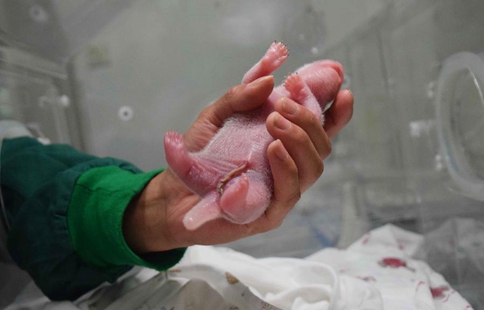WASHINGTON, Aug. 1 (Xinhua) -- Casual contact like kissing or sharing a fork or spoon is unlikely to pass a Zika virus infection, a new study said Tuesday.
Researchers at the University of Wisconsin-Madison (UW-Madison) who conducted experiments with monkeys found that saliva does not appear to be an approach to spread Zika, according to the study published in the British journal Nature Communications.
"If passing the virus by casual contact were easy, I think we would see a lot more of what we would call secondary transmission in a place like the United States," Tom Friedrich, a virology professor at the UW-Madison School of Veterinary Medicine, said in a statement.
"But we're not seeing clinically apparent spread of Zika throughout the continental U.S. without the presence of the mosquitoes that carry the virus, and our study helps to put into context some of the transmission risk."
Scientists believe that mosquito bites are the source of most Zika virus infections in people.
The virus can also be spread by sexual intercourse, but it has been unclear whether the saliva of an infected person posed a danger.
In the new study, researchers infected monkeys with the strain of Zika virus that has been circulating in North and South America in recent years, and collected saliva from the infected ones.
Then, they swabbed the tonsils of five uninfected monkeys with the saliva, and for comparison, swabbed the tonsils of three monkeys with a concentrated high dose of Zika virus in solution.
None of the saliva-swabbed monkeys developed an infection, nor did a pair of monkeys who had infected saliva swabbed in their nostrils or eyelids.
However, all three monkeys who had high-dose virus applied directly to their tonsils in the absence of saliva got infected, though the infection took slightly longer to develop than in monkeys infected under their skin.
Actually, the study's infected monkeys had very little active virus in their saliva, compared to the amounts typically passed into people or monkeys by mosquito bites, the researchers said.
Meanwhile, there are also anti-microbial components in saliva making that low level of virus even less infectious than it might be in another medium, they said.
In addition, saliva is "viscous" stuff, which hinders the ability of the Zika virus to move and get to cells that they could infect.
However, the researchers were also quick to point out a mysterious case of Zika transmission - between an elderly man and his caretaker son in Utah last year -- that ruled out better-understood routes such as mosquitoes or sexual activity.
The son became infected apparently after having contact with his deceased father who had a "uniquely high amount" of virus -- more than 100,000 times higher than seen in other samples of infected people -- in the blood.
"The case in Utah was an outlier -- by orders of magnitude -- in terms of the amount of virus that was present in his blood," Friedrich said.
"Transmission via saliva is theoretically possible, but it would require extraordinarily high viral loads that just aren't present in the vast majority of infected people."
Most people do not have symptoms or will have only mild symptoms when infected with Zika, but the virus has been linked to a serious birth defect called microcephaly and other severe brain defects in babies whose mothers were infected during pregnancy.

















